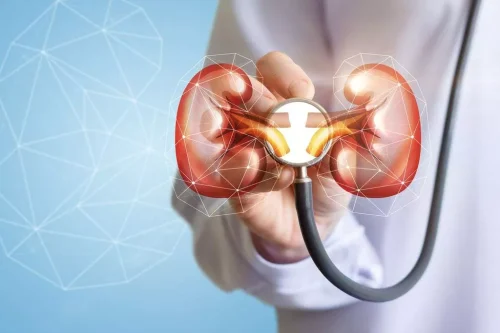
While most people can tolerate sulfites in foods, there are some who are especially sensitive to them and may experience an asthma attack. In rare instances, exposure to sulfites has been known to cause a potentially life-threatening, whole-body allergy known as anaphylaxis. In some cases, they might use an oral challenge test to diagnose an allergy or intolerance.
Health insights you can act on

The same applies to distilled alcohol made from wheat if you have a wheat allergy. Because the condition is inherited, there is no way to cure or treat it. Your healthcare provider can recommend ways to limit unpleasant symptoms.
Sulfites intolerance
Some types of sulfites might also trigger an asthmatic attack if you have asthma. The content of this article is not intended to be a substitute for professional medical advice, examination, diagnosis, or alcohol allergy treatment. You should always contact your doctor or other qualified healthcare professional before starting, changing, or stopping any kind of health treatment. Grape AllergiesAlthough grape allergies are rare, they can still cause an ill affect. Wine is obviously the most prominent alcohol that is made from grapes, but you should also avoid Armagnac, cognac, vermouth, port, champagne, wine coolers and packaged martini mixed.
Your Cozy Abode Might Be Fueling Your Allergies This Winter
Therefore, if you have celiac disease or non-celiac gluten sensitivity, you’ll need to steer clear of conventional beer and some other drinks. Your healthcare provider will ask you about the symptoms Substance abuse and reactions that occur after you drink alcohol. If you have a non-allergic intolerance to alcohol, histamine, sulfites, or other components of alcoholic beverages, your doctor might encourage you to limit or avoid certain types of alcohol. In some cases, over-the-counter or prescribed medications might help alleviate symptoms.

A person with severe allergies should carry one with them at all times, in case of a serious allergic reaction. There are several ways for a doctor to diagnose an alcohol allergy or intolerance, including the approaches below. If a person thinks they have an alcohol allergy, they should eliminate alcohol from their diet and consult with a healthcare professional. If in doubt, ask your allergy specialist for advice about the types of alcoholic beverages you can or cannot drink. The best way to live with this condition is to avoid alcohol as much as possible. Avoiding alcohol will allow you to live an active, enjoyable life without unpleasant symptoms.

Some people with Hodgkin’s lymphoma experience pain after drinking alcohol. Hodgkin’s lymphoma is a type of cancer that can affect your lymphatic system. Many people with Hodgkin’s lymphoma develop enlarged lymph nodes.
- Learn the signs and symptoms to keep an eye out for and why certain drinks might affect you more than others.
- Even so, many people with celiac disease or gluten sensitivity report reactions to distilled spirits made from gluten grains.
- However there is only one way to know for sure, visit you local allergist and get tested.
This article looks at some of the possible causes of alcohol allergy or intolerance. It also offers tips on how to drink alcohol safely if you have an allergy or intolerance to any ingredient used to make wine, beer, or distilled spirits. Hangover symptoms can be perceived as collateral damage to a good night out, but they may actually be the result of an allergic reaction to ingredients in alcohol. On the other hand, an alcohol sensitivity or intolerance happens when your body struggles to metabolize or digest alcohol.
Alcohol Allergies and Intolerance
- Examples of allergens that can set off allergic reactions include pollens, pets, dust, foods and medications.
- Having a mild intolerance to alcohol or something else in alcoholic beverages might not require a trip to a doctor.
- If you have an alcohol allergy, make sure to have epinephrine shots with you at all times and wear a medical ID bracelet that tells health professionals you have an allergy.
- If you develop any signs of a severe reaction, you should receive one or more doses of epinephrine.
- Ask your doctor for more information about your diagnosis and treatment options.
- Depending on the allergy severity, a person may treat symptoms with over-the-counter medications, such as oral antihistamines, if the reaction is mild.
Sulfur dioxide is another closely related chemical that can trigger reactions in some people. If you have an allergy, your immune system over-reacts to contact with a trigger or “allergen.” If you have an alcohol allergy, your immune system treats alcohol as a threat. It responds to alcohol by producing antibodies known as immunoglobulin E (IgE). Your doctor also may recommend that you stop drinking all alcoholic beverages for a while. Then you can start again, perhaps trying just one of your go-to drinks at a time. If the reactions return with specific drinks, then you know which ones cause problems for you.
What are the symptoms of alcohol allergy?
Some vintners add more sulfites to wines because they act as preservatives. As far as treatment goes, it will depend on if you have an allergy or simply just have a sensitivity. Symptoms may occur within seconds or minutes of alcohol exposure and could trigger after exposure to even tiny amounts of the allergen.
- Be sure to keep track of your symptoms, note what you drink and how it affects you.
- Lastly, alcohol is a diuretic, meaning it increases urine production and can lead to dehydration.
- There are several ways for a doctor to diagnose an alcohol allergy or intolerance, including the approaches below.
- Common sulfites include potassium bisulfite or potassium metabisulfite.
Other tests
People with mold or yeast allergies may have an allergic reaction to the brewer’s yeast used to make fermented beverages like beer, wine, and hard cider. A reaction to high-histamine foods could be a sign of histamine intolerance. Your body has two enzymes that are supposed to break down histamine, but sometimes they don’t work as well as they should. Gin, vodka, and whiskey are all made from gluten-containing grains such as wheat, rye, and barley. Unless gluten-containing flavorings are added after the distillation process, distilled spirits are considered gluten-free.
